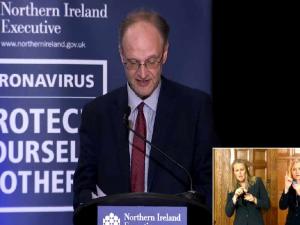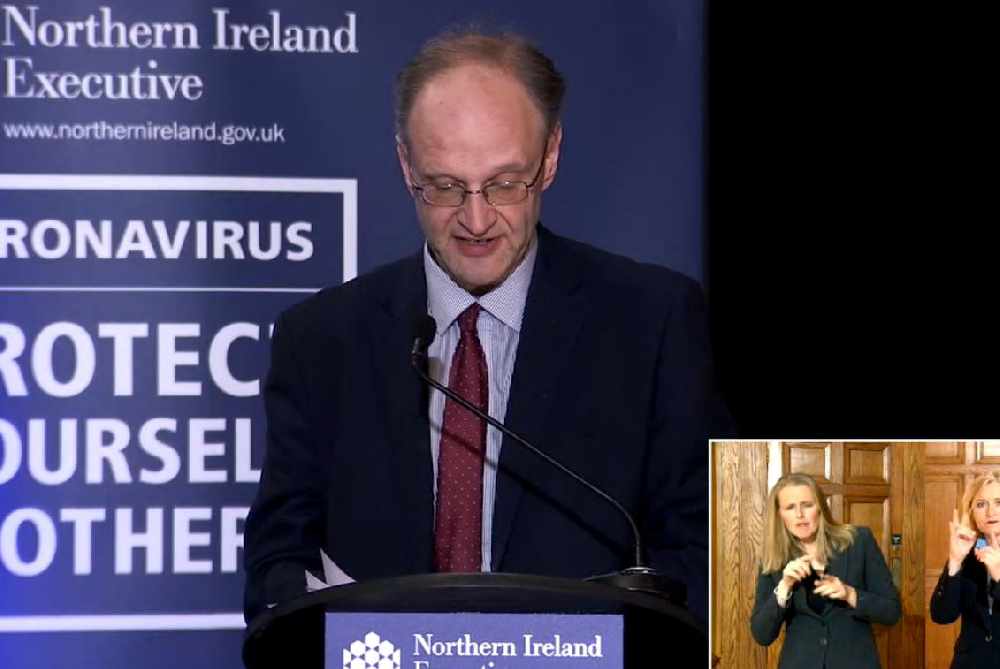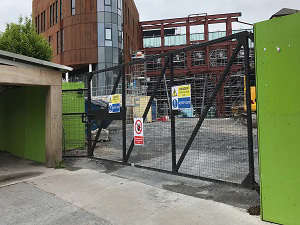
By Q Radio News and PA
Secondary school students will have to sit fewer exams in 2021 under plans announced by Northern Ireland’s education minister.
Peter Weir said a more generous grading system would also be used to reflect the disruption to learning caused by the Covid-19 pandemic.
He also revealed GCSE, AS and A Level students will be assessed on significantly reduced curriculum content on 2021, with flexibility introduced to enable pupils and schools to choose which units to take.
“Let me first reiterate that I will not be cancelling examinations,” Mr Weir told the Assembly.
“However, I know our students are facing unprecedented disruption to their learning. That’s why our qualifications will be different next year and I will be taking exceptional steps to ensure they are as fair as possible. In recognition of the challenges of studying in such disrupted times, I am taking unprecedented steps to reduce assessment across qualifications.”
Mr Weir said the experience of 2020 had made it clear that exams must go ahead next year.
“I have heard the calls from some for me to cancel exams,” he told MLAs.
“Those voices have been loud and public. But I have also heard the quieter voices of those who are equally anxious that exams should go ahead, and have urged me to stand firm on this.”
He added: “It would be easy to make a seemingly populist decision, but being in government is about making the right decision in the interests of all. Whilst on the face of it simply cancelling exams would seem like a good approach as we sit here today, I do not believe it is the right longer-term approach for our young people.”
Mr Weir said he wanted to deliver “fair, inclusive and flexible” exams.
“The best way to assure fairness and comparable standards across all schools is to have a common assessment tool that is applied under the same conditions in every school and is marked externally to ensure fairness,” he said.
“I genuinely believe that the experience of summer 2020 has shown us that exams remain the fairest method of assessing and awarding qualifications. We saw right across the United Kingdom and much of Western Europe that despite every effort and good intention, other forms of assessment are likely to be more inequitable.
"Cancelling exams would undoubtedly lead to different sorts of anxieties for young people, and would put incredible additional pressures on schools.
“Therefore, I believe that it is in the best interests of pupils and schools that public examinations go ahead. Exams are the best way of giving young people the opportunity to show what they can do which is why it’s so important they take place next summer.”

In October, Mr Weir announced changes to GCSE exams that would enable students to omit assessment of one unit of each of their qualifications, up to a maximum of 40% of each qualification.
On Tuesday, the minister announced similar changes to AS and A-Levels.
Under the measures, young people will have the opportunity to omit up to 60% of their AS or A2 assessment.
In many subjects that will see pupils only taking one unit of assessment. Unit or units assessed must add up to at least 40% of the AS or A2 qualification.
“At the centre of this reduction is choice,” said the minister.
“Our schools and colleges will choose which unit or units of assessment their pupils will take. Our young people will be assessed on topics and content in which they feel most confident and well prepared, allowing them to demonstrate their skills and knowledge to the highest possible level.
“In line with the emphasis on choice, candidates will be able to take all of their AS or A2 units, if they so wish.”
He added: “I believe these changes will relieve much of the stress which our young people are experiencing. This approach will allow them to focus on key topics for a small number of examinations whilst enjoying teaching and learning in other areas of the qualification, which will not be examined.”


 More than 5,000 NI children set to spend Christmas in temporary accommodation
More than 5,000 NI children set to spend Christmas in temporary accommodation
 No evidence of police collusion in 1978 La Mon bombing
No evidence of police collusion in 1978 La Mon bombing
 Sex offender who targeted girls online across the UK jailed for 27 years
Sex offender who targeted girls online across the UK jailed for 27 years
 Pre-trial rulings due in Bloody Sunday prosecution of Soldier F
Pre-trial rulings due in Bloody Sunday prosecution of Soldier F
 ‘Worst-case scenario’ could delay Belfast maternity hospital by four years
‘Worst-case scenario’ could delay Belfast maternity hospital by four years